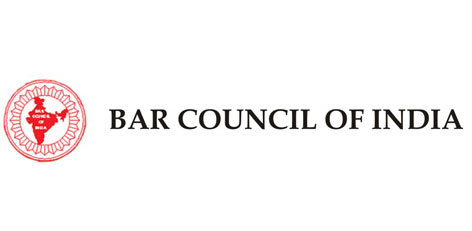Now Reading: Historical Background of Bar Council of India
-
01
Historical Background of Bar Council of India

Historical Background of Bar Council of India
The Bar Council of India is a statutory body incorporated under Section 4 of the Advocates Act 1961 that regulates the practice and education related to the law in India. Its members are selected from amongst the lawyers in India and as such represent the Bar Council. It prescribes standards of professional code of conduct, etiquette and exercises disciplinary jurisdiction over the bar. It also sets standards for education in the legal field and gives recognition to Universities whose degree in law will be served as a qualification for students to enroll themselves as advocates after graduation.
Under the Advocates Act, The Bar Council of India was established by the Parliament. As per Section 7, the following statutory functions cover the Bar Council’s regulatory and representative mandate for the profession and education related to the Legal field in India:
1. To lay down standards of professional code of conduct and etiquette for the advocates.
2. To lay down the procedure for its disciplinary committee and the disciplinary committees of every State Bar Council.
3. To secure the rights, privileges, and interests of advocates.
4. To encourage and support legal reforms.
5. To deal with and dispose of any matter which is referred to it by a State Bar Council.
6. To promote legal education and to lay down standards of legal education. This is done with the consultation of the Universities imparting legal education and every State Bar Council.
7. To recognize Universities whose degree in law shall be qualified for enrolment as an advocate.
8. To provide legal aid for the poor and weaker sections of the society.
9. To recognize on an alternate basis, the foreign qualifications in law obtained outside India for enrolment as an advocate in India.
10. To control and invest the funds of the Bar Council.
11. To provide for the election of its members for the management of the Bar Councils.
The Bar Council of India may constitute funds for the subsequent purposes:
1. Giving monetary help to organize welfare schemes for poor, disabled or other advocates,
2. Giving legal aid, and
3. Establishing law libraries.
The Bar Council of India may receive grants, donations, and gifts for any of those functions.
HISTORY
1950
When the Constitution of India came into force on January twenty-six, 1950, the Inter-University Board at its annual meeting constituted in Madras, passed a resolution stressing the necessity for an all-India bar and underlining the desirability of forming consistently high standards for law examinations in numerous Universities of the country in view of the very fact that a Supreme Court of India had been established.
In May 1950, the Madras Provincial Lawyers Conference stated under he presidency of Shri S. Varadachariar resolved that the government of India ought to appoint a committee for the aim of evolving a scheme for an all-India Bar and amending the Indian Bar Councils Act to bring it in conformity with the new Constitution.
At its meeting stated on October 1, 1950, the Bar Council of Madras adopted that resolution.
1951
Shri Syed Mohammed Ahmad Kazmi, a Member of Parliament, introduced on April 12, 1951, a comprehensive bill to amend the Indian Bar Councils Act.
The Government of India took the view that within the modified circumstances of independence, a comprehensive Bill sponsored by the govt was necessary. In August 1951, the then Minister of Law proclaimed on the ground of the House that the government of India was considering a proposal to establish up a Committee of Inquiry to look into the matter thoroughly. The Committee was established and asked to look at and report on:
1.The desirability and practicability of a very unified Bar for the whole of India,
2.The continuance or termination of the dual system of counsel and solicitor(or agent) that obtains within the Supreme Court and within the Bombay and Calcutta High Courts,
3.The desirability and practicability of establishing one Bar Council for (1) the whole of India and (2) for every State,
4.The formation of a separate Bar Council for the Supreme Court,
5.The consolidation and revision of the varied enactments (Central as well as State) concerning legal practitioners, and
6.All other connected matters.
The All India Bar Committee was headed by the Hon’ble Shri S.R. Das, who was the Judge of the Supreme Court of India.
1953
A detailed report was submitted by the All India Bar Committee on March 30, 1953. The report contained the proposals for establishing a Bar Council for every state and an All-India Bar Council at the national level as the apex institution for governing the profession as well as to administer the standard of education of Law in India.
Meanwhile, the Law Commission of India had been assigned for the preparation of a report for the reforms of judicial administration.
1961
For the implementation of the recommendations of the All-India Bar Committee and considering the report submitted by the Law Commission as advised about the profession, a comprehensive Advocates Bill was introduced in the Parliament which resulted in the Advocates Act, 1961.








